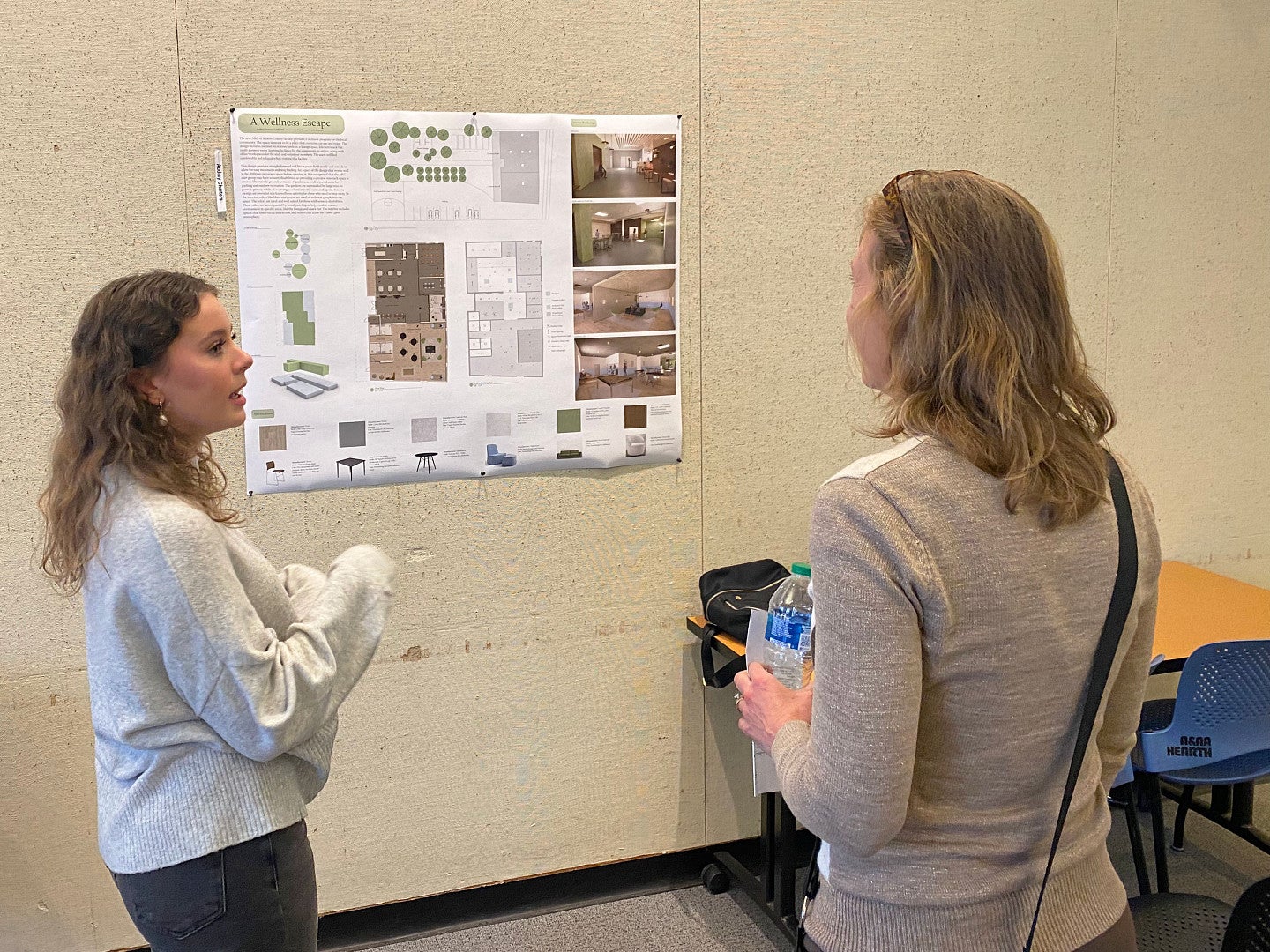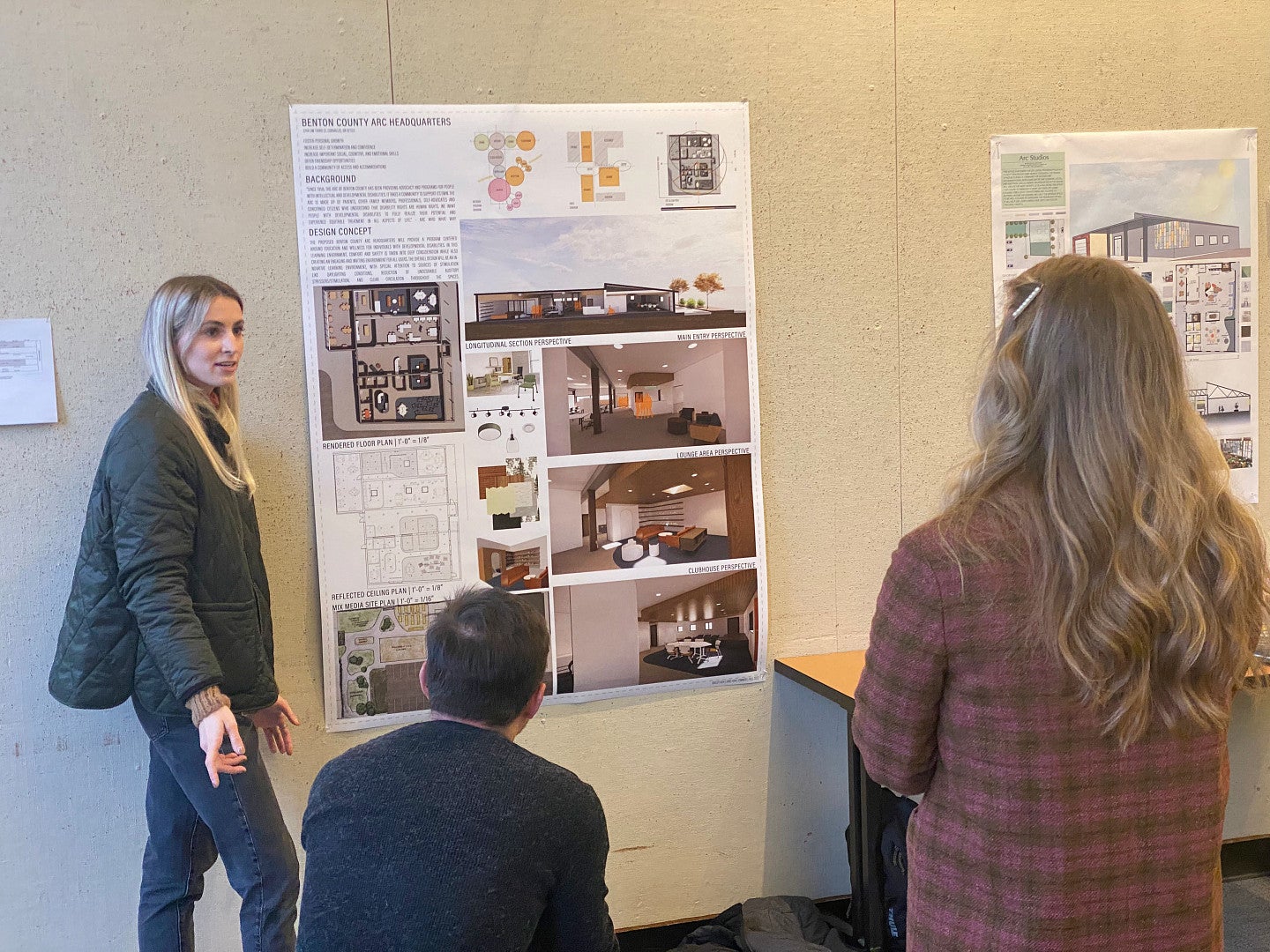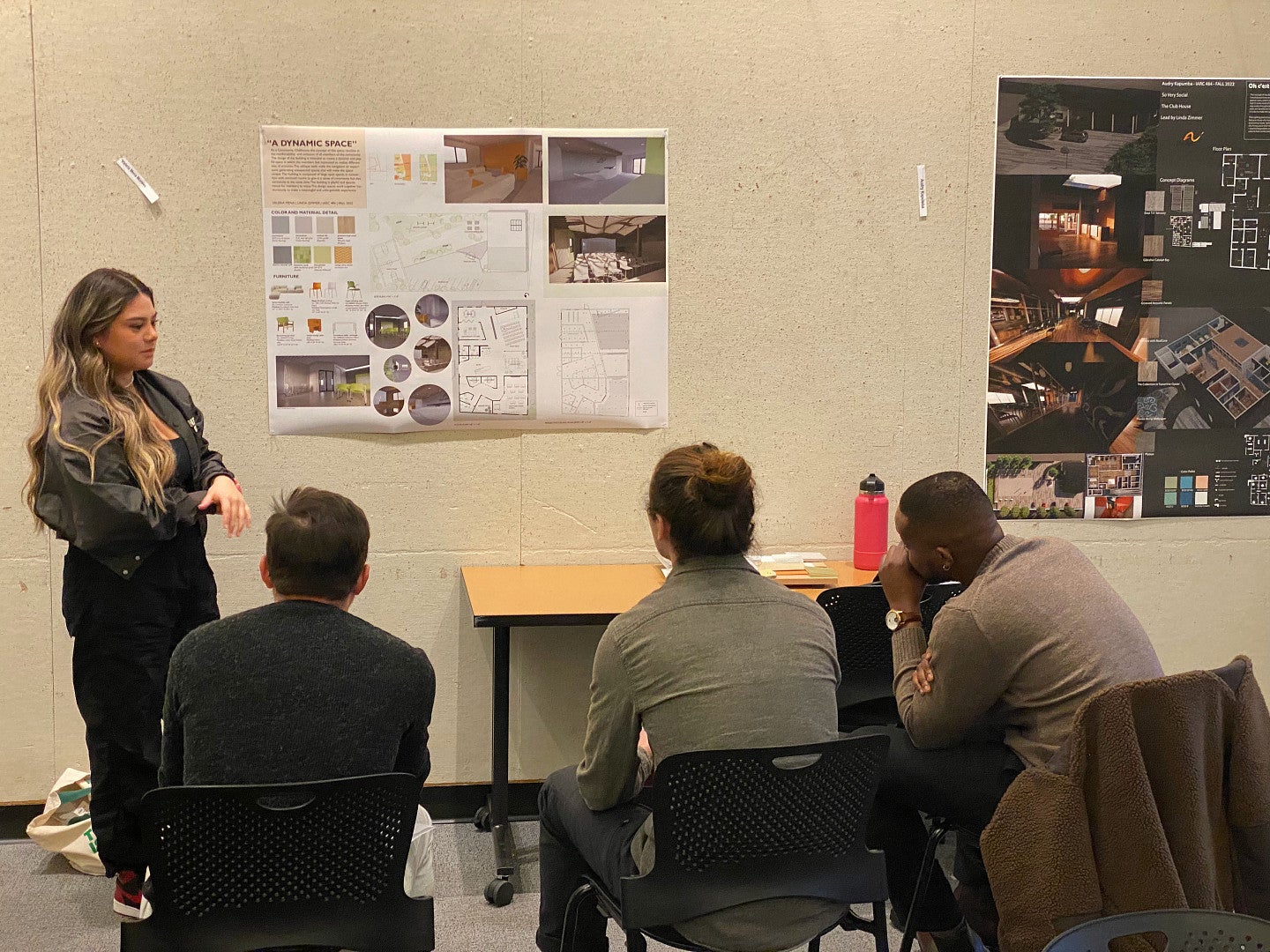
Experiential learning opportunities give students an incredible opportunity to take the theoretical and put it to use on a real-life problem. This fall, students in an interior architecture studio were presented with a unique opportunity to make a difference in Corvallis, courtesy of The Arc of Benton County.
The Arc of Benton County (The Arc) is a local, nonprofit chapter of The Arc of the United States – the largest advocacy organization for people with intellectual and developmental disabilities (IDD).
As people with IDD age, they may lose their systems of support and barriers may restrict access to needed resources. As an advocate and navigator for people with IDD, this is where The Arc steps in.
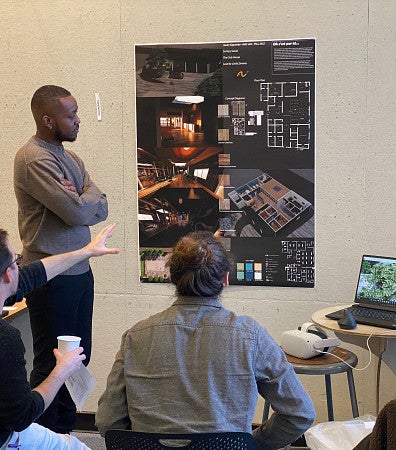
Since 1958, The Arc has assisted its members in finding opportunities related to their individual needs. Assisting with seeking employment, helping with gaining access to affordable housing, engaging in healthcare advocacy, and providing social justice representation are just a few of the ways The Arc helps its members and community.
With a thrift store in the heart of Corvallis and many generous partners in the community, The Arc recognized that it needed a larger, central location to provide additional needed services for the community. With this in mind, the organization purchased a 5,700-square-foot former restaurant in south Corvallis with plans of redesigning the space to be an inclusive “community clubhouse” for informal social activities and programmed activities.
After the purchase, The Arc reached out to the School of Architecture and Environment (SAE). The Arc hoped that working with the experts in SAE would enable the organization to broaden the scope of ideas and help create a safe, inclusive, and accessible environment with their new facility. Recognizing a great experiential learning opportunity, Associate Professor of Interior Architecture Linda Zimmer brought the project to her fall class, IARC 484/584 “So Very Social.”
“This particular work with The Arc seemed like a great opportunity for a class to work on a meaningful project while gaining professional experience,” said Zimmer. “A studio project based on the development and research of the unique needs of people with IDD while exploring how people use, adjust, and change interiors over time really helps to prepare our students for putting theory into practice in a meaningful way.”
Students studied the unique challenges that The Arc’s community may face on a day-to-day basis and responded to them down to the smallest details of their designs. From kitchens and classrooms to basketball courts to sensory rooms, each design decision was made to acknowledge and break down potential barriers. The chance to make a real impact on real people energized the class.
“The students’ excitement and enthusiasm towards the project from the very first time they saw our building showed us that working with SAE was the right decision,” said Misha Marie, social navigator at The Arc.
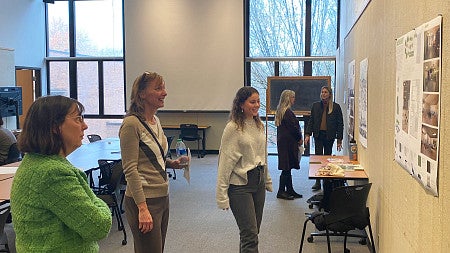
“When these types of experiential learning opportunities are offered, we are always impressed, but not surprised, by the student’s work,” explained Zimmer. “These experiences bring out the best in our students and build a bridge to future practice.”
During fall reviews, the hard work and thoughtful student plans for the clubhouse were unveiled for The Arc’s team, who were thrilled with the results.
“The experience and knowledge of these students will definitely play into our final project.” said Diane Scottaline, Executive Director of The Arc. “I’m already mentally picturing how we can implement the concepts we’ve seen [at these reviews] into our final design.”
The next steps for the studio include examinations by interior architecture professors, teams of advocates, parents, and students for much-needed feedback. After incorporating the teams’ notes, The Arc will have to decide how to mesh these student-developed concepts into their plans before presenting their ideas to an architecture firm in the near future.
“This type of studio and experience is crucial for our students’ development to become well-rounded, thoughtful designers,” said Zimmer. “The college appreciates the opportunity to work with our communities to provide these types of high-quality, rigorous solutions while enriching the student experience at the University of Oregon.”
While plans are moving ahead full steam for the nonprofit, they do rely on donations for operation, especially for this ambitious project. The Arc intends to open the doors of the clubhouse in the fall of 2025 and is seeking donations to help make the remodeling of the clubhouse a possibility.
